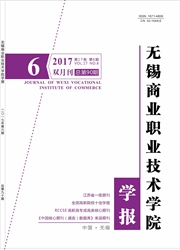

 中文摘要:
中文摘要:
本文基于中国综合社会调查(CGSS)2010年数据和230个城市的数据,考察了公共支出结构与公共服务对居民幸福感的影响。研究结果显示:第一,公共服务对居民幸福感具有显著的正向影响,同时居民幸福感与社会公共服务水平密切相关,而对经济公共服务要求不高,这与中国居民生活水平的发展阶段相关。第二,公共服务水平的上升显著提高了低收入人群的幸福感,而与高收入人群的幸福感相关度不高。高收入人群的幸福感更多地来自公共安全服务和经济公共服务水平的提升,而低收入人群的幸福感更多地来自与民生密切相关的基础公共服务和社会公共服务水平的提升。第三,在民生领域的公共支出比重越高,居民幸福感越高,说明偏向民生的公共支出结构可以改善居民幸福感。第四,财政支出自给率越高的城市,偏向教育、科技等方面的公共服务支出比重越低。中国式的财政分权制度往往会扭曲公共支出的结构,不利于居民福利水平的提升,进而影响居民幸福感。
 英文摘要:
英文摘要:
This study focuses on the effects of public expenditure structure and public service on the well-being of residents using CGSS2010 data and data in 230 cities in China. The results show that, firstly, public services have significant positive effects on the residents' well-being. The impacts on happiness of economic public service, public safety service, public service and social public service are successively increasing. Secondly, the rise of public service levels improves the well-being of low-income people more obvious than the high-income people. High-income people rely more on public safety and public services than the low-income people while the influence of basic public service and social public service on the well-being of low-income people is higher than that of high- income people. Thirdly, with higher proportion of public expenditure in the people's livelihood, residents' happiness sense is higher. It shows that public expenditure structure which favors the people's livelihood can improve people's sense of happiness. Fourthly, with higher fiscal serf- sufficiency rate in the city, bias of science and technology, education and other public services expenditure is lower. China's fiscal decentralization system tends to distort the structure of public expenditure, which is not conducive to the improvement of the level of residents' welfare, thus affecting the well-being of residents.
 同期刊论文项目
同期刊论文项目
 同项目期刊论文
同项目期刊论文
 期刊信息
期刊信息
